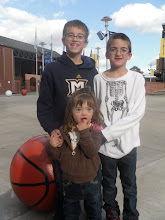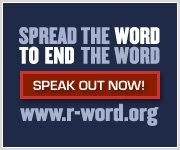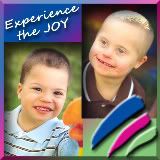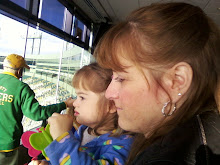I am still teaching a multicultural class, and last night I was reading some chapters from the textbook after the kiddos went to sleep (oh whatever happened to the days of living it up on Saturday nights). Anyway, I just might as well face the fact that time in my life is over (ha ha), so one of the chapters I was reading was Counseling Individuals of Multiracial Descent in Counseling the Culturally Diverse by Derald Wing Sue and David Sue (2008). I am eagerly waiting to get to the part about disabilities, but that isn’t until the last night of class. But going back to this chapter about multiracial descent…
What struck me about this chapter is how it can be for individuals to live between two worlds. I have known that idea before with some of my clients, but it really struck me last night how this could be similar to my experience with Quinn. I am not saying that these experiences are exactly the same; what I am saying is that there were some areas in that chapter that hit close to home for me in how I see our family of diversity – two typical children and one child with Down syndrome. There is the world of ability and the world of disability within my own family. And sort of like how we deal with race in our society, we seem to try to force people to choose which world they will identify with. I struggle with this myself, and part of this involves things I place on myself. Will I now just be about ability or will I just be about disability? I am still working on that, but can’t the answer be both? I place this on myself somewhat, but there are also outside influences.
In terms of outside influences, I think some in the world would rather me just go and be about disability, keep to friends who also only have a child with a disability, separate myself and my family. I would be better if not seen, heard, or vocally pointing things out. I think they would rather not know that these things exist. Denial is where they want to stay. Whereas, there are also some others who would love to see, learn, and experience the diversity in even my own family. I truly love these people and you all know who you are! It is interesting because with my own children, there is such diversity – I have one that is very bright and everything comes easy for him (I can really identify with Riley); another who is very bright, doesn’t always use it the right way, and has some minor concerns with speech/language that will likely work themselves out over time (oh the excitement of Aidan); and one who I would argue is bright but according to our society’s standards would be considered as having and will always have a cognitive disability (my beautiful daughter Quinny). There is such diversity within my own family, so as a family unit we are multi-ability. This chapter of Sue and Sue’s inspired me to think about this.
Going back to Sue and Sue, these authors talked about with individuals of multiracial descent that they have often been “ignored, neglected, and considered nonexistent in our educational materials, media portrayals, and psychological literature” (p. 390). I thought about how this applies to disability as well. Maybe denial seems easier to others to not feel bad about this area, but it certainly doesn’t help us, the families. I am happy for the television series Life Goes On, but why don’t we see more of this type of thing? In my own field, psychology, very little is discussed about what it feels like to have a disability or a child with a disability. Instead we focus on diagnosis and move on. There are other parallels that I saw in this chapter as well. There were laws against racial mixing (in 1967 the last of these laws were removed) – well there also was a eugenics movement related to stopping those with cognitive disabilities from having families. There was the “one drop rule” related to African American descent – well there is also the idea that once you have one child with a disability, you are now one of those families of disability. It is sometimes like Riley and Aidan doesn’t exist – they aren’t asked about. And sometimes I need to be aware of this on this blog too. I need to talk about them all. They all are essential to this family. Again, I am not saying that these two experiences (being multiracial or having a family with multi-abilities) are identical; I am just finding this interesting how our society deals with difference.
Sue and Sue also talked about the idea that for some individuals of multiracial descent, that their racial backgrounds aren’t fully visible to others (the phenotype observed versus the genotype that exists) and this also creates a unique set of difficulties. With me, it isn’t visible to others that I have a child with Down syndrome, unless she is with me. So I could be off to work (like that isn’t something I spend a lot of time doing – ha ha) and someone could make a comment (let’s say they blurt out the dreaded r-word). Well they couldn’t KNOW by looking at me that I come from this multi-ability family. This comment will obviously offend me and then I have to make the difficult choice of saying something or not. If I say something, the issue may come up – well why do you care? Then I have to explain myself. Sue and Sue talk about how those with multiracial descent may have to explain themselves more than the average person – “what are you?” It can lead to a big long discussion where you have to explain yourself – there may be concern about being judged or having to explain yourself. This can all lead to feelings of invalidation for some.
Then there is the experience of existing between the margins – how this may impact someone. In conversations about kids, I am somewhere in the middle. I don’t totally fit the Down syndrome discussions (it is a syndrome after all and so two kids with Down syndrome may have very different experiences) and when it comes to the typical children discussions, I don’t fit entirely there either. I am between two worlds. I am aware of this a lot.
But even though there are these difficulties mentioned above, there are such great rewards. Sue and Sue listed the following benefits of being of multiracial descent in their chapter – “increased sense of uniqueness, better ability to relate to more diverse groups, greater tolerance and understanding of people, ability to deal with racism, enjoying what many groups have to offer, greater variety in one’s life, and better ability to build alliances with many diverse people and groups” (p. 399). Once I again I was struck by how this is parallel to my experience with Quinn – I really feel those benefits too. I heard others say that their child with a disability is their teacher and that they are the student. Each day I am getting this more and more. Thank you my darling Quinn. I love you. Also thank you my handsome sons, Riley and Aidan, you teach me so much about the other side too. I love you.
-Karyn
What day is it, even?
5 years ago


















Thank you Karyn, for posting this. It's wonderful.
ReplyDelete